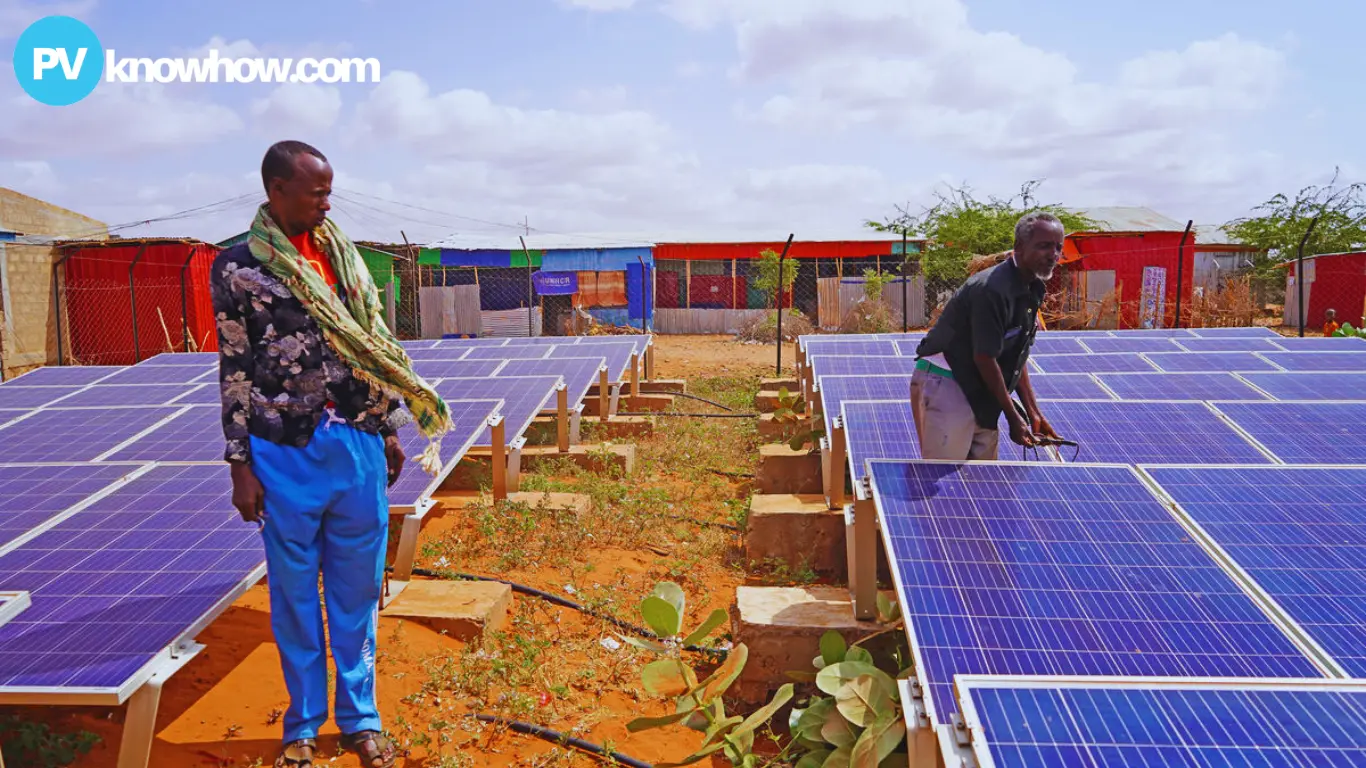To address vulnerabilities exposed by recurring droughts, Ethiopia is accelerating its energy transition away from hydropower and toward more sustainable alternatives like solar energy. This shift is vital for diversifying the country’s energy supply and powering its socioeconomic development.
Hydropower’s Challenges and the Need for Energy Transition
Ethiopia’s reliance on hydropower, which generates over 90% of its electricity, has made it one of Africa’s renewable energy leaders. Yet, this very dependence on water resources leaves the energy system vulnerable to climatic fluctuations. Recurrent droughts have diminished water levels, exposing the fragility of a power supply reliant on rainfall and highlighting the urgent need for diversification.
With diversification now essential, solar energy presents a promising alternative ready to transform Ethiopia’s energy landscape. The country’s vast solar potential is a key advantage, averaging 5.5 to 6.5 kWh/m²/day of sunlight throughout the year. These abundant solar resources offer a clear path toward a more resilient energy future and sustained socioeconomic development.
Solar Energy as a Sustainable Solution
The shift to solar energy is a cornerstone of Ethiopia’s energy transition. Beyond being renewable, solar power offers a sustainable solution to the country’s energy challenges. As the cost of solar technology continues to fall, it has become increasingly affordable and accessible, making it an attractive option for rural and urban populations alike.
Solar home systems and mini-grids are beginning to replace traditional energy sources like kerosene lamps and biomass, which are both inefficient and harmful to health and the environment. These solar solutions provide clean, reliable, and cost-effective electricity, especially in rural areas where energy access has long been limited.
By improving energy availability, solar power can stimulate local economies, enhance educational opportunities, and bolster healthcare services—all of which contribute to overall socioeconomic development.
Ethiopia’s Climate Goals and Solar Investment
The transition to solar energy is also closely tied to Ethiopia’s climate objectives. As a signatory to the Paris Agreement, Ethiopia is committed to reducing its greenhouse gas emissions and achieving carbon neutrality by 2030.

Ethiopia”s solar projects
Ethiopia is investing heavily in solar projects, including a major $300 million initiative to generate 300 megawatts (MW) of solar power. This investment is expected to contribute significantly to the country’s renewable energy goals and help reduce its carbon emissions.
Sahrela Abdulahi, Director-General of Ethiopia’s Petroleum and Energy Authority, emphasized the government’s commitment to this energy transition. She highlighted ongoing initiatives that align with Ethiopia’s 2030 vision for a green economy, pointing specifically to solar energy as a key driver of this change.
Overcoming Challenges in the Energy Transition
Despite its promising future, Ethiopia’s transition to solar energy faces several challenges, including significant hurdles in infrastructure development, financing, and technology adoption.
The initial capital required for solar installations can be a major barrier, particularly for households in rural areas. To help address this, the government is offering incentives that encourage private-sector participation in solar projects.
Additionally, Ethiopia’s renewable energy sector faces a shortage of technical expertise. Developing a skilled local workforce for solar installation and maintenance is crucial for the long-term success and sustainability of these projects. Overcoming this challenge will require significant investment in education and training programs.
The Ethiopian government is also developing regulatory reforms to promote energy efficiency and create a framework for renewable energy transactions. These policies are designed to attract more domestic and foreign investment into the solar sector.
The energy transition in Ethiopia represents not just a shift in power sources but also a pathway to sustainable development. By embracing solar energy, Ethiopia can improve energy access, mitigate climate risks, and drive economic growth, ensuring a brighter future for its people.
